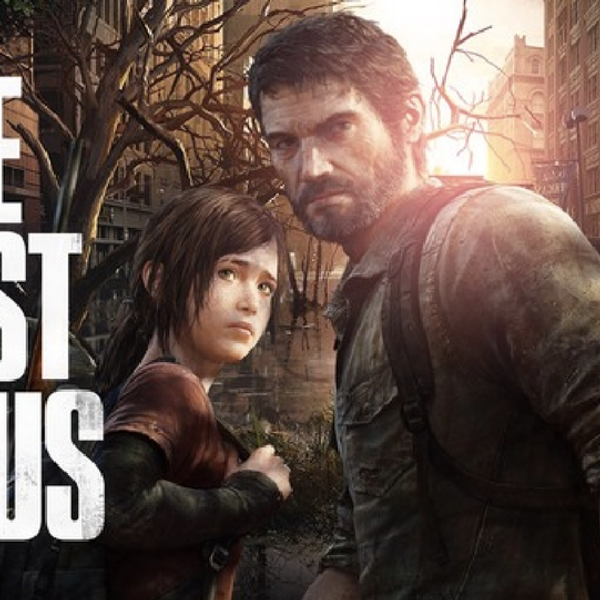Hello, hello, and welcome to week two of a series of articles written by yours truly which have little to no relation to each other whatsoever. If you are back after reading my first article last week, welcome back and thank you for sticking with me. If this is your first time with me, hi my name is Bradan Smith and it is nice to sort of meet you. Now down to business.
Have you ever watched a movie and during said movie thought to yourself "why would you do that? That was the stupidest thing you could have ever done. I would have done this, etc. etc." Happens to me all the time and that is where the beauty of choice-based games comes into play.
Choice-based games, or interactive movies as some may call them, are games where you the player get to make choices as to how a game plays out, whether it be choosing the dialogue a character says or choosing who to save in a certain situation and consequentially causing another character to "kick the bucket". I will now give you fair warning, this article is going to discuss the plot lines of games such as Telltale's "The Walking Dead", Far Cry 3, and Call of Duty Black Ops 2 so if you have not played those games and this article will spoil them for you. Quite frankly they have been out for a while. If you were going to play these games (among others) with any excitement you would have by now so tough luck.
The evolution of choice-based games has grown dramatically over time. As players have gotten bored with the same storyline over and over again, the pressure on gaming companies has mounted to try and make video games a little more diverse in terms of plotlines. One thing that makes a game sell is replay value and nothing has more replay value than a game that could have played out entirely differently had a player used a different strategy or gone a different route.
One of the early examples of a choice-based game was not even a choice-based game at all, but rather a game that gave you a choice on how to end the story. I am referring to Ubisoft's Far Cry 3. To make a long story short, the player is left with the lousy choice to end the game by either giving into their "primitive instincts?" by slitting his girlfriend's throat and soon after getting laid, or to throw down the knife and save his friends from death. This in-game choice is famous for being one of the WORST choices in gaming history, but is also monumental in that it is one of the first mainstream games to give a player a choice on how their story ends.
Next came the gaming company known as "Telltale Games." Telltale has set the mark for choice-based games with many successful hits such as "The Walking Dead season one" (which won numerous game of the year awards) and two, "The Wolf Among Us", and their own side story to the popular TV show, "Game of Thrones". These games became so popular because they gave the player control over how the story played out. As they will tell you before you start playing "The story is tailored by how you play."
In season one of "The Walking Dead" the player plays as Lee who travels through Georgia in an effort to keep a young girl named Clementine, who he more or less adopted, safe. Along this journey, Lee encounters other survivors and has to work with them. What makes this game unique is the fact that the player can be left with many choices throughout the game on what to do with Lee, whether it choose between comforting someone as opposed to insulting them, or be it choosing which fellow survivor to save. In short, while the game pushes you towards the same ending, you never truly play the same game twice.
As players became accustomed to the same style of telltale's gameplay, the hunger for more diverse story grew. Telltale has done a solid job of playing into the favor of these hungers with games like "Game of Thrones" where your choices cause a more diverse story and have more impact down the road, but all-in-all their games still push you into the same conclusion. In steps in the popular title, "Until Dawn."
"Until Dawn" is a more recent game which has taken the success of Telltale's idea and went a step further. In the Telltale Games video games, the choices a player makes do have an impact and change how the story plays out a bit, but in "Until Dawn", a player's choices, as well as skill, are factors. If a player playing "The Wolf Among Us" messes up in an action sequence gets Sheriff Bigby killed, then they have to replay that sequence because the story requires Bigby to live. But if a player messes up in "Until Dawn" and gets a character killed, then that's it. The story goes on and a player can finish the game either with all eight main characters alive or dead. The point is, this choice-based game has allowed the story to play out in what seems like 1000 different ways with 1000 different endings as opposed to a Telltale Games game where the narrative always points in the same direction.
As choice-based games have evolved, our hunger for more diversity of choices and endings have evolved as well. Yet the popularity of dictating the ending has grown and game companies have taken notice. Even games like "Call of Duty: Black Ops 2" have used the choice-based model. I look forward to the day when we can play a full-out interactive movie in virtual reality and make the movements or on the spot decisions that result in life or death. At the rate choice-based games are evolving, that particular brand of game will be coming soon.
If you enjoyed this article or have something to add please feel free to share and comment!





















